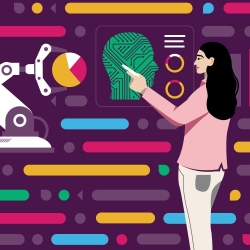To provide the best experiences, we use technologies like cookies to store and/or access device information. Consenting to these technologies will allow us to process data such as browsing behaviour or unique IDs on this site. Not consenting or withdrawing consent, may adversely affect certain features and functions.
The technical storage or access is strictly necessary for the legitimate purpose of enabling the use of a specific service explicitly requested by the subscriber or user, or for the sole purpose of carrying out the transmission of a communication over an electronic communications network.
The technical storage or access is necessary for the legitimate purpose of storing preferences that are not requested by the subscriber or user.
The technical storage or access that is used exclusively for statistical purposes.
The technical storage or access that is used exclusively for anonymous statistical purposes. Without a subpoena, voluntary compliance on the part of your Internet Service Provider, or additional records from a third party, information stored or retrieved for this purpose alone cannot usually be used to identify you.
The technical storage or access is required to create user profiles to send advertising, or to track the user on a website or across several websites for similar marketing purposes.
 Teams with a positive inclination towards artificial intelligence experienced a dampening effect on their enthusiasm to collaborate when forced to use AI technology, a new study has found. Researchers also found that teams with initial negative views about AI were in fact more likely to collaborate with AI when forced to use it. The research, which has been published in the academic journal Group & Organization Management, underscores the importance of trust in AI and how employers should introduce the growing technology into their businesses. More →
Teams with a positive inclination towards artificial intelligence experienced a dampening effect on their enthusiasm to collaborate when forced to use AI technology, a new study has found. Researchers also found that teams with initial negative views about AI were in fact more likely to collaborate with AI when forced to use it. The research, which has been published in the academic journal Group & Organization Management, underscores the importance of trust in AI and how employers should introduce the growing technology into their businesses. More →






































May 10, 2023
How to eliminate tech-shaming in the workplace
by Aaron Taylor • Comment, Technology, Workplace